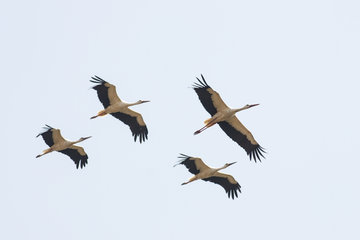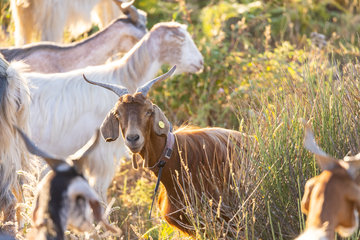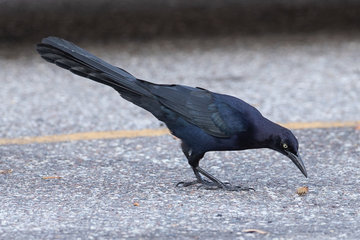Alpha animals must bow to the majority when they abuse their power
Democratic decision-making allows subordinate vulturine guineafowl to regain control over collective group actions when dominants have a monopoly over resources

Vulturine guineafowl are large birds native to savannahs of East Africa. They are the first bird species to have been reported to live in a multilevel society where social groups comprising from 15 to more than 60 individuals interact preferentially with other social groups. Within these large groups, there is a clear dominance hierarchy. Like in wolves and primates, the dominant, or alpha, group members can outcompete other group members and exclude them from food.
While it had long been thought that alphas lead the way and decide where the group moves next, studies over the past decade have suggested that all group members can have equal say by ‘voting’ for where the group goes next. However, it has remained to be determined whether this form of democratic decision-making exists in order to keep the power of dominants in check. “Working together as a group is critical for these birds, as their bright plumage makes isolated individuals easy targets for predators such as leopards and martial eagles”, says Damien Farine, the senior author of the study and lead research on the vulturine guineafowl project.
Despotic leadership versus democratic decision-making

The scientists found that who initiated, and therefore decided where the group moved to next, was dependent on the recent actions of the dominant group members. When groups were feeding in large spacious areas, where distributed food was equally accessible to everyone, then all group members contributed equally. However, when dominant individuals monopolised a particularly rich food patch – chasing other group members out – then the excluded subordinates combined their votes to move the group away from the patch, ultimately forcing the dominants to abandon their rich resources. These findings suggest democratic decision-making, as opposed to despotic leadership, has evolved so that all group members can obtain the resources (e.g. food and water) that they need to survive. This would not be possible if dominant individuals always decided what was best for themselve.
The researchers combined observations on foot, video tracking, and high-resolution GPS tracking across multiple groups of vulturine guineafowl, spanning several years. They first recorded all disputes between individuals birds to assign each animal a rank in the dominance hierarchy. They used an evaluation procedure common in chess, football, and table tennis used to assess players ranks based on who they lost and won matches against. The scientists also monitored which bird initiated departures from and to new feeding sites, and the order of individuals following from first to last.
Baboons also follow the majority vote
Having worked with baboons that inhabit the same savannah habitats, Damien Farine previously found that individuals can ‘vote with their feet’ by moving away from the group in their preferred direction. His previous study, conducted as part of a team of researchers now all based at the Max Planck Institute of Animal Behavior and the Centre for the Advanced Study of Collective Behaviour, found that when these individuals reach a majority, the rest of the group follows in that direction.
The current study on guineafowl suggests that democratic decisions about group movements are a critical piece of the puzzle that allows groups to remain cohesive despite the large inequalities in access to resources among individuals. By being able to initiate and make the group move away from monopolised resources, democratic decision-making allows subordinates to take back control when too much power is lost to dominants. They can even force higher-ranking animals to leave a feeding site that is best for them. “We were very excited when we first noticed that subordinates were leading their group after having lost access to resources, and we nicknamed this the ‘losers lead mechanism’”, says Danai Papageorgiou, doctoral researcher at the Max Planck Institute of Animal Behaviour and leading researcher of the study. “Our findings highlight how collectives can react to rising social inequality. Democratic decision-making is critical for maintaining a balance of power in societies where functioning as a group is critical to survival”, Papageorgiou adds













